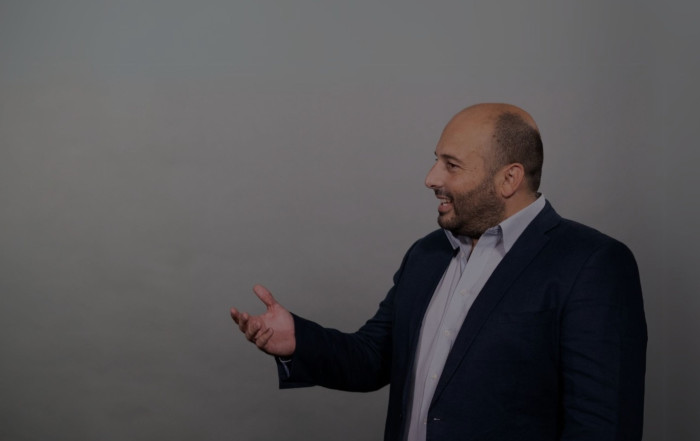Why Leadership in Malta is More Isolated Than You Think
We often picture business leaders as confident, driven, and in control. They make big decisions, move companies forward, and often carry the weight of others. But in reality, many leaders do all this while feeling deeply alone.
In our recent research conducted through Willingness in collaboration with the Malta Chamber of Commerce, we asked a simple but rarely discussed question: Who is taking care of the boss? The answers we received revealed something striking. Behind the ambition and strength that define many Maltese business leaders, there is a silent, growing sense of disconnection and emotional fatigue.
Most leaders do not end up in their position by chance.
They tend to share a specific psychological profile. Our research showed that Malta business owners and senior managers score high on conscientiousness, extraversion, and emotional stability. These people work hard, communicate clearly, and take personal responsibility seriously.
They also show a strong internal locus of control. That means when something goes wrong, they do not blame external circumstances. They look inward. They ask what they could have done differently, how to improve, and where they fell short. While this mindset is essential for effective leadership, it can also become a heavy burden.
When everything becomes a personal responsibility, it becomes harder to step away. Leaders start absorbing the company’s emotions of their team, and the constant pressure to perform. Over time, this leads to a unique isolation that few outside leadership circles fully understand.
Surrounded by People, Yet Still Alone
One of the most powerful insights from our research was the idea that people surround many leaders but still feel emotionally alone. We refer to this as the “lonely at the top experience. While they are often physically present in meetings, team events, and decision-making rooms, they feel emotionally disconnected from those around them.
There are several reasons for this. First, leaders may struggle to show vulnerability. Sharing concerns or doubts can feel risky. They fear appearing weak or incompetent, especially in high-stakes environments. Second, the traits that help them succeed—independence, confidence, and self—drive—can make it difficult for them to ask for support or admit when they are struggling.
One business owner in our focus group said something that stuck with me: “I have a lot of people who rely on me, but I don’t have anyone I can talk to about the pressure I feel.” This quote captures the emotional toll many leaders carry silently.
Burnout is often discussed in the context of employees, but our data shows that leaders are just as vulnerable, if not more so. Fifty-four per cent of managers in our survey reported experiencing symptoms of burnout, and more than 30 per cent of employees said they could tell their boss was too stressed to lead effectively.
This matters because when leaders burn out, it affects them, staff morale, retention, and company performance. Teams become anxious. Communication suffers. People start leaving. Ironically, the very people who are trying to hold everything together end up watching things fall apart.
The problem is particularly acute in medium-sized companies in Malta. Leaders here manage significant responsibilities without the same support structures as in larger firms and are often expected to perform HR, operations, marketing, and strategic roles all at once. Unsurprisingly, 90 per cent of managers in this category rated their workload as “high” in our study.
Recognising the problem is the first step.
We also need solutions. One of the strongest takeaways from our research is that leaders need safe spaces to speak. Whether it is through coaching, supervision, or peer-to-peer networks, leaders should not have to carry everything alone.
Businesses can help by creating structures that encourage open dialogue. Board-level check-ins, leadership development programmes with emotional support, and mental health training for senior staff are all essential starting points. A cultural shift is also needed—one where vulnerability in leadership is not seen as weakness but as a sign of self-awareness and strength.
It is time we normalised the idea that the people in charge also need care. Behind the strategy meetings and confident decisions is a human being who, like everyone else, needs rest, support, and connection.
A More Human Leadership Culture
If there is one thing I learned through this project, it is that leaders in Malta are incredibly resilient. But resilience does not mean invincibility. It simply means bouncing back; to bounce back, you need space to fall apart now and then.
Creating a culture that supports leaders’ well-being is not just good ethics; it is good business. When leaders feel emotionally connected, heard, and supported, they lead better, build stronger teams, and create organisations where everyone, not just the employees, can thrive.
Let us stop expecting our leaders to be superheroes and give them the human support they deserve.
Share this Blog
Recent Thoughts
Rumours, Noise and Real Growth: Learning to Keep My Eyes on the Road
“Matthew is a closeted gay.”“Matthew jumps from woman to woman.”“He’s money-minded.”“I’ve heard he sees women for free if they ‘offer favours’.”“I’ve heard he’s
Ikigai vs. Workaholism: Why I’ve Given Up Perfectionism and Workaholic Tendencies
1) Facing Challenges Head-On Throughout my career, I've always faced problems head-on. Confronting challenges directly is part of who I am. However, there





